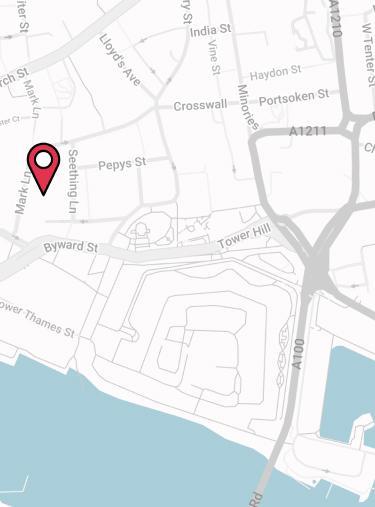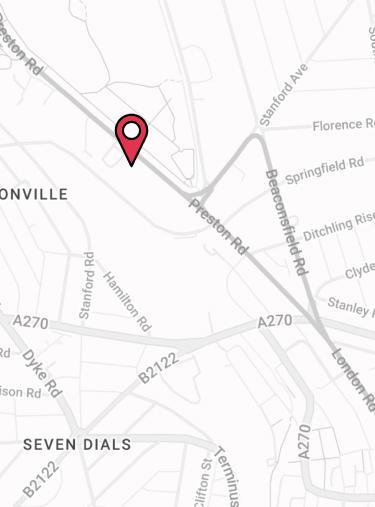
Income Protection Insurance For Contractors
As a contractor or company director of a limited company, you usually don’t benefit from sick pay if you’re unable to work. That’s where Contractor Income Protection Insurance comes in. But what exactly is it, and how does it work? We’ll explain everything you need to know in this guide.
What Is Contractors Income Protection?
Income Protection for contractors (otherwise known as Executive Income Protection) will pay out a monthly benefit if you’re unable to work due to accident or sickness.
Having an Income Protection policy in place can:
- Cover up to 80% of your salary and dividend drawdown from your company (including pension and National Insurance contributions)
- Protect your business partner’s dividend drawdown if they’re in a non-profit-generating role and wouldn’t continue to create income for the business in your absence
- Protect your earnings right up until your expected retirement age.
Why Is Contractors Income Protection Important?
This particular type of policy protects your outgoings, such as your mortgage / rent, bills and utilities, and groceries. It safeguards you against financial instability due to illness or injury, ensuring a steady income when you’re unable to work.
This cover is especially important for contractors who lack the sick pay benefits of regular employees, protecting your livelihood and providing peace of mind in uncertain times.
SPECIALIST OPINION 🤓
According to consumer group Which? Income protection is the one policy every working adult should consider.
How Does Contractor Income Protection Insurance Work?
Just like a personal Income Protection policy, Income Protection for contractors pays out a monthly benefit if the policy holder is unable to work due to accident or sickness. This benefit is designed to then cover monthly outgoings such as:
- Mortgage / rent
- Food
- Household bills
- Loans / credit cards.
The biggest difference between a personal policy and a contractors policy is how it’s paid for. With a contractors policy, you pay your premiums through your business rather than through your personal bank account.
This way, you benefit from significant tax savings, which we’ll explore in more detail later.
What Does Contractor Income Protection Cover?
Under the “own occupation” definition of incapacity, Income Protection will cover you for anything that medically prevents you from doing your specific job. There are very few standard exclusions on a policy. However, many providers limit claims resulting from:
- Self-inflicted injuries
- Drug or alcohol misuse / abuse
- Travel to a country with political instability, internal conflict, or an active epidemic that the Foreign Office has advised against.
Other than these exclusions, coverage is determined by your pre-existing medical history.
Each insurer will have different definitions of “incapacity”. It’s important to get to grips with these before choosing a provider, as in the event of claim, it’ll be how they determine whether you’re fit to work.
Does Contractor Sickness Insurance Cover Pre-Existing Health Conditions?
It depends on the health condition, its severity and whether you’ve suffered with it in the last five years. As with any type of cover, you need to declare any pre-existing health conditions when applying for Contractor Income Protection insurance.
Each insurer has its own view on pre-existing conditions, and is likely to do one of the following:
- Cover the medical condition on standard terms
- Include the medical condition for an increased premium
- Exclude the medical condition altogether.
If a condition is excluded by your insurer, it may be reviewed after a certain period. This is only if you haven’t received any advice, medication, or treatment for said condition. But it’s entirely down to the insurer’s discretion.

At Drewberry™, we have great relationships with the top UK insurers, giving us access to the most competitive terms on your policy.
We’re here if you want to chat through your options – just call 02084327333, or email help@drewberry.co.uk to speak to one of our specialists.
Danny Gill
Independent Protection Adviser
What To Consider When Taking Out Contractors Income Protection
There are a number of factors that you need to consider when taking out a Contractor Income Protection policy. Here are some of the key considerations.
Benefit Amount Needed
Probably the most important factor: how much money do you want to be insured for? An Income Protection policy will cover between 50-80% of your gross (pre-tax) salary.
The benefit amount you need will depend on your personal circumstances. While it can be tempting to opt for the maximum cover, it’ll be more expensive. The best thing to do is consider your core outgoings first, and choose your benefit from there.
Length Of Deferral Period
A deferral period is the time between making a claim and getting your payout. These can range from one day to 52 weeks. The longer your deferral period, the lower your premiums will be, so if you have savings and can afford to opt for a longer deferred period, it’s worth considering.
Payout Length
How long do you want your Contractor Income Protection policy to pay out for? Short-term plans will only pay you a monthly income for one, two or five years, whereas a long term policy will continue paying out until you’re well enough to return to work, or to the end of your policy.
A smaller benefit amount, longer deferral period, and shorter payout length will bring you lower premiums. But you need to ensure that these are suitable for you in reality. That’s why it’s best to work with a specialist before buying a policy.
Policy Cease Age
This refers to how old you’ll be at the end of the policy. Most people align it with their planned retirement date. Many providers will allow you to take out cover that lasts all the way up to age 70, but this will significantly increase premiums compared to a policy that ends at age 65 or even age 60, so consider this carefully.
Premium Type
There are three main types of premiums you can choose from with an Income Protection policy:
- Reviewable premiums
The insurer is able to “review” premiums as they see fit. For example, your premiums could go up if the insurer has received a high number of claims. Reviewable premiums are cheaper at the outset, but they can become a lot more expensive over time - Age-banded premiums
These premiums will also increase over time. Unlike reviewable options, these can only increase by a set percentage to reflect the greater risk of claims as you age. This means you’ll know exactly what you’ll pay each year. These premiums tend to start out cheaper - Guaranteed premiums
Guaranteed premiums cannot change over time. Your premium is fixed from the outset of the policy. While they start out more expensive than age-banded or reviewable, they often work out cheaper during a long-term policy as they can’t rise over time.
Your Definition of Incapacity
Definitions of incapacity determine how unwell you need to be to make a claim. There are three definitions an insurer may use:
- Own occupation
“Own occupation” means you’ll get your insurance payout as long as your injury or illness prevents you from doing your specific work duties. For example, a contractor who runs a massage therapy business and injures their hand wouldn’t be able to carry out treatments, and could therefore make a claim under this definition - Suited occupation
To claim “suited occupation”, you must be unable to do your current job or any other role where you have experience or skills. Let’s take the massage therapist from the above example: their hand injury might mean they can’t carry out treatments, but they may have the skills and experience for different role. In this case, they wouldn’t be able to claim under the “suited occupation” definition - Any occupation / work tasks
You can only claim under this definition if you reach a specific level of being “unfit to work” – meaning you’re unable to work in any job or perform a set number of tasks in basic roles. This is the most difficult incapacity definition to claim on.
We usually recommend choosing “own occupation” when taking Contractors Income Protection as it’s the definition that’s most likely to pay out. “Any occupation / work tasks” is significantly more difficult.

We usually recommend choosing “own occupation” when taking Contractors Income Protection as it’s the definition that’s most likely to pay out. “Any occupation / work tasks” is significantly more difficult.
Samantha Haffenden-Angear
Independent Protection Specialist
Other Considerations
Alongside the various policy options to choose from, there are some specific factors to consider when looking to take out Contractors Income Protection.
Should I Link My Policy To Inflation?
When you take out a long-term policy, you’re at risk of the payout being consumed by inflation over time. If you “index link” the policy, your insurer will write to you yearly to explain the cost increases of goods and services (known as the Retail Prices Index).
They will allow you to increase your benefit by the same amount to maintain pace with inflation. However, this means your premiums will rise to take into account the higher benefit amount.
What About Covering Dividend Payments?
Many contractors pay themselves a small salary, topping the rest up with dividends to maximise tax efficiency. To cover dividends, you must be actively contributing to the success of your company, either as part of a team or as the sole employee.
If you’re a director of your own business, many insurers will allow you to cover this payment. In other words, the dividend must be paid to you in lieu of salary for work undertaken.

Be cautious if your income rises and falls as you win and complete contracts. Some insurers will base the maximum amount of cover on an average of the last three years of earnings.
Others will base it on earnings over the previous 12 months. This can make a big difference when it comes to a claim.
Rauri Taylor
Independent Protection Adviser
Income Protection Client Stories
Do I Need Contractor Income Protection Insurance?
Whether you need protection is down to your own personal circumstances. Having Income Protection in place can provide financial security if you’re unable to work due to accident or sickness.
Why Take Out Contractor Sickness Insurance?
As a contractor, your income is tied to your ability to work. Although you can’t predict the future, you can prepare for it.
- 1 in 5 employees said they wouldn’t be able to save more than a week on savings
- 34% of adults have either no savings or less than £1,000 tucked away.
Considering the average household weekly expenditure is £567.70, it’s clear that having insurance in place makes sense.
Could You Rely On Savings Or State Benefits?
Many turn to government support during times of financial instability. However, Employment and Support Allowance offers £92.05 a week if you’re over 25.
While there are other state benefits, such as Statutory Sick Pay (which provides £118.75 a week), these depend on your circumstances and your health. When you consider how much an average household spends on bills, such benefits are not enough.
Why Self-Employed Finance Blogger, Mrs Mummypenny Took Out Income Protection
Being protection specialists, we know how important it is to put cover in place, but don’t take our word for it. We caught up with the award winning finance blogger Mrs Mummypenny to see why she took out Income Protection. Take a look 👀
How Much Does Contractor Income Protection Cost?
How much your cover costs will depend on your own personal circumstances. However, there are certain policy and personal factors that will impact what you pay. We’ve outlined these below and provided some example monthly premiums. These are based on:
- A healthy office-based contractor
- A benefit of £1,800 a month
- Four week deferral period
- Long-term cover and cease age of 65
- Guaranteed premiums.
Provider
Each provider has their own view on risk. Because of this, premiums will differ depending on which insurer you go to. That’s why it’s essential to gather quotes from a few different companies before buying a policy.
| Provider Comparison | |
|---|---|
 |
 |
| £28.31 | £42.12 |
Quotes correct as of October 2025
Age
Age is another factor that will impact your premiums. Unfortunately, the older we get the more susceptible we become to illness. As a result, premiums will increase with age.
| Age Comparison | ||
|---|---|---|
| Age 30 | Age 35 | Age 40 |
| £21.39 | £28.31 | £36.26 |
Quotes correct as of October 2025
Deferred Period
The deferred period is the amount of time between you making a claim and your benefit amount being paid. The longer the deferred period you choose, the cheaper your premiums will be.
| Deferred Period Comparison | ||
|---|---|---|
| 4 weeks | 8 weeks | 13 weeks |
| £28.31 | £18.24 | £14.04 |
Quotes correct as of October 2025
Smoker Status
Due to the associated health risks that come with smoking, Contractor Sickness Insurance premiums will be higher for smokers.
| Smoker Vs Non-Smoker Comparison | |
|---|---|
| Non-smoker | Smoker |
| £28.31 | £41.83 |
| 42% increase for smokers 😮 | |
Quotes correct as of October 2025
Other Cost Factors
Medical History
Your medical history will also play a part in how much you pay for Income Protection. If you suffer from a pre-existing health condition, insurers may choose to increase your premiums. Or, they may exclude the condition from your policy altogether.
Occupation
If you have a job that’s deemed “higher risk”, your premiums may be bumped up. This is because certain occupations (such as construction workers) are at a higher risk of needing time off work due to accident and injury.
Can You Pay Income Protection Premiums Through Your Business?
Yes, you can pay Income Protection premiums through your business if you opt for an Executive Income Protection policy. This type of policy is owned and paid for by a limited company for a director or single employee.
If you need to claim, it’s paid back into your company, and it’s then up to you/your accountant to distribute the funds as income.
There are a limited number of providers that offer company-paid policies, mainly:
In some circumstances an executive policy might not make sense for your needs. Some contractors choose to take out a personal policy which is paid from their net pay.
How Is Contractor Sick Pay Insurance Taxed?
If you pay for Income Protection Insurance through your limited company, it’s taxed differently from a personal plan. While payouts from a personal policy are tax free, a limited company policy differs.
With Contractor Income Protection, you’re taxed on your payout instead of your monthly premiums. This is why you’re permitted to insure more of your gross income – up to 80% – than you would on a personal plan. You need to take into account the fact that tax is taken at the source before you see the benefit.
The tax relief goes into your limited company, and it’s up to you and your accountant to distribute it from there in a tax-efficient manner.
Is Contractor Income Protection A P11D / Benefit In Kind?
Another benefit of paying premiums through your limited company is that it’s not usually classed as a P11D/benefit in kind. HMRC sees it as an allowable business expense, so the premiums are deducted from your corporation tax bill.
How To Make A Claim On Contractor Income Protection Insurance
To make a claim on your policy, you’ll need to contact your Income Protection provider’s claims team. Instructions on how to do so are usually included in your policy documents.
You’ll be asked to supply a completed claims form and evidence of your condition – usually a note from your GP.
Online or via post are the typical methods of submitting a claim, but it’s becoming increasingly possible to make claims over the phone.
Receiving A Payout
Once your claim is approved by the provider, you’ll need to wait until your set deferred period has passed before receiving your payout.
If you still can’t work after this period, then you’ll begin receiving a monthly income to replace your lost wages.
You’ll receive this until either:
- Your payout period expires (short-term policies)
- You’re well enough to return to work, or
- You retire if you can never work again (long-term policies).
Neil’s Cancer Claim With British Friendly
Neil took out an Income Protection policy with British Friendly. After four years, he became unwell and had pains in his stomach. After seeing his GP and having further tests, Neil was diagnosed with stage 2 Bowel Cancer. He then needed to make a claim. See Neil’s story 👇
Contractor Income Protection FAQs
Can contractors get Critical Illness Cover?
Contractors can get Critical Illness Cover, but only if they pay for it personally. Unlike Income Protection, there isn’t an executive policy which can be owned and paid for by the limited company.
Another option you may want to consider is Relevant Life Insurance – a policy which protects from the risk of passing away. This can also be owned and paid for by your limited company. As a result, it can have significant tax savings over a personal policy.
Relevant Life Insurance will pay out a multiple of your remuneration if you were to pass away. This is tax free as it’s written into a trust from the outset.
How long is Income Protection paid for?
You can choose how long your Income Protection will pay out. In most cases, especially for contractors, it’s sensible to protect yourself up until your expected retirement age. This will ensure that your outgoings are protected right until you start accessing your pension pot.
Is Contractor Income Protection Insurance a business expense?
Contractor Income Protection Insurance is an allowable business expense if you pay for premiums via your limited company. As premiums are tax-free, should a claim need to be made, your payout will be taxed as income.
Providing Income Protection Cover To Employees
If you’re looking to extend your Income Protection to other co-directors or employees of your business, Group Income Protection is a good idea.
This works in a similar way to contractor Income Protection, except it’s a single policy that covers multiple people, rather than one person.
If an employee covered by the policy gets ill or injured, the insurer will pay out their benefits to the company. You can then pay this to the employee in the same way they receive their salary.
Group policies usually need at least five employees to be covered. Terms, cost and cover can be quite different depending on the insurer, group size, and your employees’ circumstances.

If you’re looking to include staff on your policy, it’s best to speak to one of our financial specialists who can talk you through your options. There are more aspects to consider with company insurance, so give us a call on 02084327333 or email help@drewberry.co.uk to find out your options.
Nadeem Farid
Head of Health & Wellbeing Benefits
Compare Best UK Contractor Income Protection Providers In 2025
There are a variety of income protection policies available in the UK. But only a limited number of providers offer company-paid policies.
Here are the three major insurers offering executive income protection for contractors:
In some circumstances an executive policy might not make sense. Some contractors choose to take out a personal policy which is paid from their net pay.
Read our complete reviews of each of the Income Protection providers below. It might also be useful to read our comprehensive guide to the best income protection policies in the UK.
Remember that the cheapest plan isn’t always the best option for you. Policies and providers vary considerably.
Income Protection Product Reviews
Get Contractor Sickness Insurance Quotes And Specialist Advice
There’s more to think about when it comes to Income Protection for contractors. Luckily, we live and breathe insurance at Drewberry, helping people like you find the best cover for their needs, at the right price.
For fee-free advice and access to the most competitive rates, give us a call on 02084327333 or email help@drewberry.co.uk. Alternatively, use our online quote tool to get started.
Why Speak to Us?
When it comes to protecting yourself and your finances, you deserve first-class service. Here’s why you should talk to us:
- There’s no fee for our service
- We’re an award-winning independent insurance broker, working with the leading UK insurers
- You’ll speak to a dedicated specialist from start to finish
- 4072 and growing independent client reviews rating us at 4.92 / 5
- Claims support when you need it most
- We’re authorised and regulated by the Financial Conduct Authority. Find us on the financial services register.
Contact Us
125-135 Preston Road
Brighton
BN1 6AF
Cookies
Drewberry™ uses cookies to offer you the best experience online. By continuing to use our website you agree to the use of cookies including for ad personalization.
If you would like to know more about cookies and how to manage them please view our privacy & cookie policy.






















